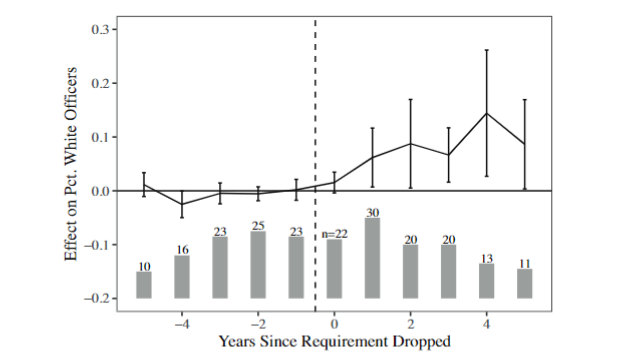We set out to answer a simple question: Do constituents ask women legislators to work on more issues? To find the answer, we conducted an experiment in collaboration with two pairs of state legislators.
In each pair there was one man and one woman. We worked with one Republican pair and one democratic pair. Each pair came from a multimember district (like we have in the US Senate), meaning that they represented the same set of constituents.
The legislators in each pair were similar in other ways. They were the same party, the same race and had taken similar positions on the bills before their legislature. The key difference between the legislators in each pair: gender/sex. One was a man, and one was a woman.
Because gender is the key difference between the legislators, any observed differences in how constituents responded to them can reasonably be attributed to gender.
The legislators contacted their constituents asking for their input via a survey. Half of the constituents were contacted by their female representative and half were contacted by their male representative.
The survey asked constituents to list the issues that the legislator should work on. Over a thousand constituents responded with a set of issues important to them. Their responses listed many of the everyday issues that constituents care about: education, roads, support for small businesses, etc.
The results reveal that for each constituent they contact, women are asked to work on more issues. If a male legislator and a female legislator both contacted 50 constituents, she would receive 8 issue requests and he would receive 7 issue requests. Thus, when holding the outreach level constant, constituents are asking women to do 14 percent more work than their male counterparts.
The increase in issue requests occurs on a wide range of issues. Women were asked to do more on issues that are traditionally considered women’s issues (e.g., Education and Health) and other issues too (e.g., Immigration).
One unanswered question: What do women legislators think of this pattern? The potential upside of receiving more issue requests is that female legislators may learn more about their constituents, putting them in a stronger position to represent their interests. However, that must be balanced against the pressures of being asked to do more.
This blog piece is based on the article “Constituents Ask Female Legislators to do More” by Dan Butler, Elin Naurin, and Patrik Öhberg, forthcoming in the Journal of Politics, Volume 84, Issue 4.
The empirical analysis of this article has been successfully replicated by the JOP. Data and supporting materials necessary to reproduce the numerical results in the article are available in the JOP Dataverse.
About the authors
 Dan Butler is Professor of Political Science at Washington University in St. Louis. He studies questions of representation. He studies representation and is coauthor of Rejecting Compromise: Legislators’ Fear of Primary Voters. You can find more information on his research here.
Dan Butler is Professor of Political Science at Washington University in St. Louis. He studies questions of representation. He studies representation and is coauthor of Rejecting Compromise: Legislators’ Fear of Primary Voters. You can find more information on his research here.
 Elin Naurin is Professor at the Department of Political Science, University of Gothenburg and a Wallenberg Academy Fellow. Her research focuses on parties’ election pledges and politicians’ responsiveness to public opinion. She also studies adult political socialization, especially the role of pregnancy, childbirth and early parenthood for individual’s’ political opinions, behavior and knowledge about politics. Follow her on Twitter: @elinnaurin
Elin Naurin is Professor at the Department of Political Science, University of Gothenburg and a Wallenberg Academy Fellow. Her research focuses on parties’ election pledges and politicians’ responsiveness to public opinion. She also studies adult political socialization, especially the role of pregnancy, childbirth and early parenthood for individual’s’ political opinions, behavior and knowledge about politics. Follow her on Twitter: @elinnaurin
 Patrik Öhberg is Associate Professor at The SOM Institute, University of Gothenburg. His research interest are politicians’ understanding of the public opinion, gender and politics, and terrorism. Öhberg is principal investigator of several long running elite surveys in Sweden. Follow him on Twitter: @polgu
Patrik Öhberg is Associate Professor at The SOM Institute, University of Gothenburg. His research interest are politicians’ understanding of the public opinion, gender and politics, and terrorism. Öhberg is principal investigator of several long running elite surveys in Sweden. Follow him on Twitter: @polgu


